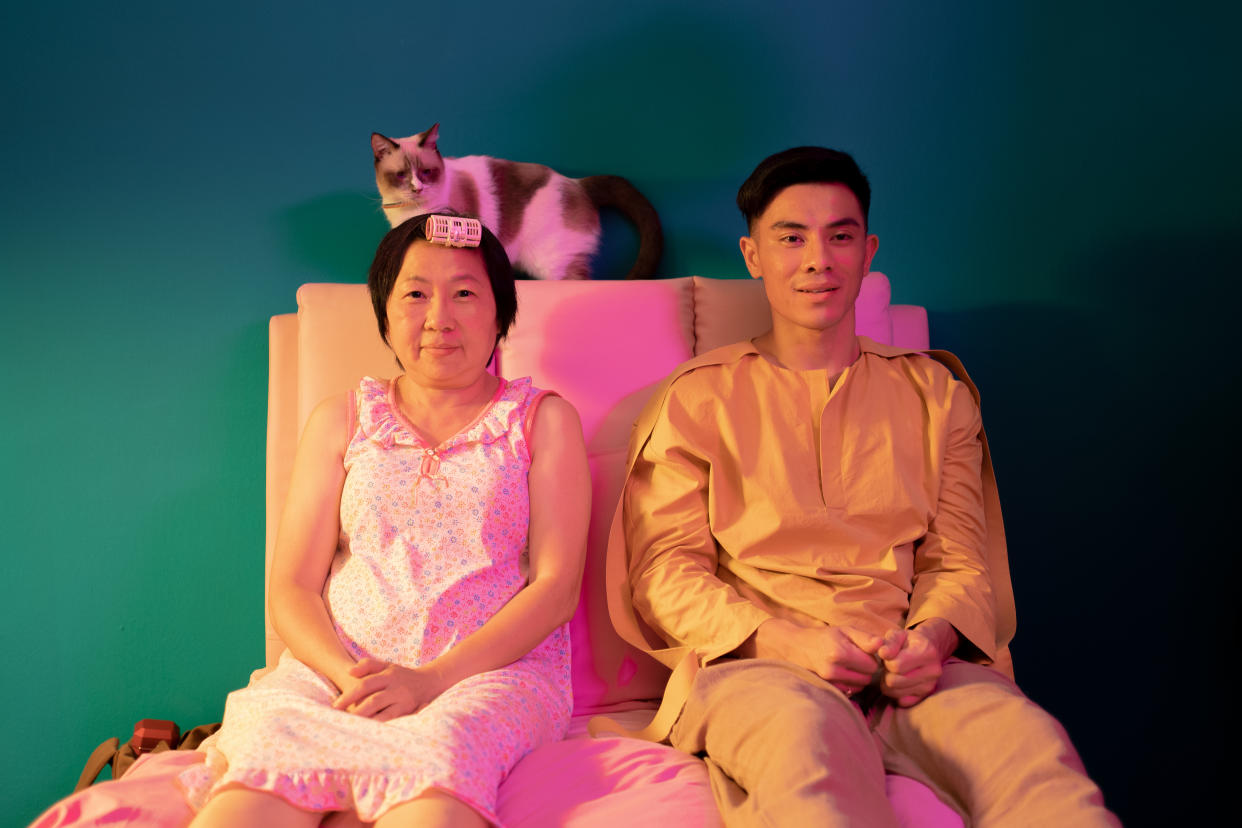Review: Tiong Bahru Social Club is a quirky comedy that warns of the dangers of AI

Rating: NC16
Length: 88 minutes
Director: Tan Bee Thiam
Writers: Tan Bee Thiam, Antti Toivonen
Cast: Thomas Pang, Goh Guat Kian, Noorlinah Mohamed, Jalyn Han, Jo Tan, Munah Bagharib
4 out of 5 stars
SINGAPORE — Tiong Bahru Social Club is a funny and light-hearted satire that both serves as a cautionary fable about the dangers of integrating artificial intelligence into our lives, as well as a tribute to the historic Singaporean districts which form the settings for the film.
The indie film by director Tan Bee Thiam has screened at the Busan International Film Festival and the Golden Horse Film Festival, and is the opening film at the Singapore International Film Festival this week.
Tan’s filmmaking career has mostly been as a producer, although he co-directed Fundamentally Happy (2015). “Tiong Bahru” is his first feature where he takes the helm as sole director, though he shares writing credits with Antti Toivonen.
And it’s a script that sparkles with quirky whimsy, buoyed by a capable cast that comprises mostly theatre practitioners. The actors may not be household names, but “Tiong Bahru” doesn’t need a famous face to charm you.

Thomas Pang stars as Ah Bee, a 30-year-old guy who lives with his mother, Mui (Goh Guat Kian). Ah Bee is perpetually smiley but isn’t really happy. He finds a job as a Happiness Agent at Tiong Bahru Social Club, a pilot project by a company – or government agency? It’s never specified – that aims to create the happiest neighbourhood in the world through a high-tech data-driven programme.
Residents of this programme live in a communal compound and are each assigned a Happiness Agent to take care of them. They take part in daily activities such as water aerobics, laughing classes and hugging workshops. Their well-being is monitored and measured regularly through a Happiness Ring that everyone wears. If the Tiong Bahru Social Club’s algorithm finds that clients’ happiness levels are not desirable, the Happiness Agents will intervene promptly.

At the club, Ah Bee meets the chirpy general manager, Haslinna (Noorlinah Mohamed), and befriends his fellow Happiness Agents, Geok (Jo Tan) and Orked (Munah Bagharib). He is assigned to take care of a cantankerous old cat lover, Ms Wee (Jalyn Han), an endearing personality with her irreverent and rebellious antics. She ironically resents the use of algorithms in controlling their lives.
The Happiness Agents turn out to be as much subjects of study for their employer as their clients are. Making the melancholy Ah Bee happy poses a challenging project for Haslinna. The club uses its AI and data techniques to create the ideal life for Ah Bee, but he comes to learn that the recommendations of machine intelligence doesn’t necessarily make one happy.
Haslinna appears to ominously manipulate her clients’ and employees’ “happiness”, but she is not a nefarious villain. The film’s premise sounds like the setting for a science-fiction dystopia, but it is breezy and never heavy – it warns us of the risks of submitting one’s life to the dictates of data, though it’s not an outright indictment of technology.

The characters traverse through copious shots featuring the iconic architectures of the Tiong Bahru neighbourhood and the Pearl Bank Apartments building, the latter of which was demolished only in February this year to make way for a condominium. According to director Tan, his film is a love letter to Tiong Bahru and its vintage art deco architecture and communal feel. Cinematographer Looi Wan Ping frames striking shots that lovingly capture the horseshoe-shaped facade of Pearl Bank, as if to immortalise this lost piece of heritage on film.
Data science might seem like a strange subject for an indie comedy, but the rapidly developing fields of AI and biotechnology will come to have a huge impact on our lives. We have grown accustomed to allowing wearable devices to measure our bodily information, and then changing our behaviour using that data. The Singapore government seeks to transform the country into a data-driven Smart Nation. It’s an ostensibly serious subject, though “Tiong Bahru” never takes itself too seriously. You won’t find deep, philosophical ruminations about the effect of AI on human relationships. The film doesn’t hit you over the head with its message – sure, AI can improve our lives, but we shouldn’t let technology completely replace our human agency.
Release date: 10 December 2020 (Singapore)



